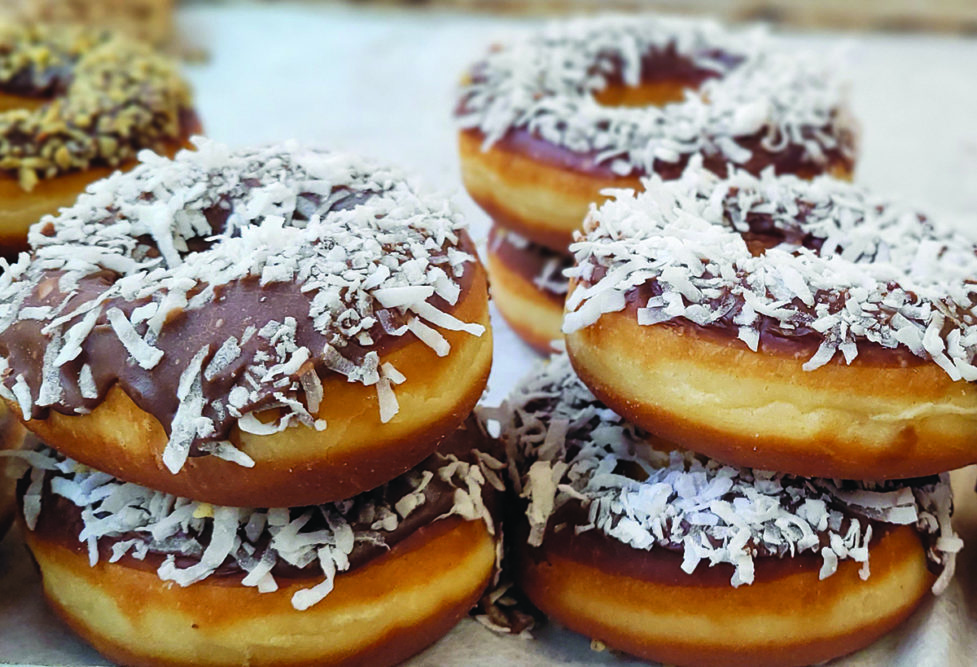
Improving performance in baked goods
Shortening and oils play an integral part of any successful donut operation.
Roger Daniels, vice president research, development, innovation and quality for Stratas Foods, explains the following tips on preparing donuts with the right oil.
“For best results utilize a frying shortening based on a high-oleic oil. The chemistry of what defines a high-oleic oil provides the perfect frying medium to achieve the balance between doughnut visual attributes and flavor. We recommend 100% high-oleic soybean oil or oils made from high-oleic sunflower and cottonseed oils. If a high-oleic oil is not available, a basic high quality soybean oil would be the next choice,” Daniels explains.
Temperature is also important. For any of the oils types the best oil temperature for quality donuts is at or around 335°F. In fact, a frying temperature that is too low or two high is the most common mistake made in donut preparation.
“Too low of a temperature and the donut is underdeveloped in texture from excess oil pick-up and exhibits a light or low doughnut color. Too high a temperature and the donut will be too dark in color and the flavor may be off,” Daniels says.
New texture system
Kerry, the world’s leading taste and nutrition company, has launched Puremul™, a new texture system which enables manufacturers to reformulate using a label friendly non-GMO alternative that overcomes the existing sunflower supply challenges. It is an innovative, natural texture system which can replace the use of sunflower lecithin and mono- and diglycerides across multiple applications, including baked goods and plant-based beverages, making it the new go-to ingredient for a multitude of development projects.
With the existing supply chain challenges and pricing instability of sunflower lecithin, Puremul™ offers manufacturers a much-needed alternative. In addition, the technology helps solve the perpetual problem of clean label emulsification by replacing the functionality of mono-and diglycerides across a number of applications, from bakery to beverage. Consumers can feel good about the ingredients in the foods they’re buying, having replaced ingredients perceived as unhealthy — mono- and diglycerides — with a cleaner label alternative.
Kerry’s Beyond the Label research found that 82% of US consumers believe a clean label is important, with almost as many actively evaluating ingredients listed on food packaging. Many consumers believe mono- and diglycerides are undesirable ingredients, and over 60% prefer breads with simple, recognizable ingredients. According to FMCG Gurus 2021 research, 74% of U.S. consumers find natural, non-GMO claims highly appealing and over 70% report they are concerned about the use of synthetic ingredients in products. Puremul addresses these concerns.
Tim Cottrell, business development director for emulsifiers, texturants and gum acacia, North America, said: “The Kerry Puremul texture system is an exciting ingredient innovation developed out of our long-time research experience with acacia, a natural, sustainable, plant-based ingredient source for food and beverage applications. We believe manufacturers and product developers in bakery and plant-based beverages will find this an exciting, clean label emulsification alternative for use in both reformulations and new-product development.”
Flavor trends
According to Vincent Barcelona, Director of Sales – National Accounts and Culinary at Stratas Foods, these are some of the current flavor trends for donuts:
- Tiramisu Filled Donuts
- Crème Brulee Glazed Donuts
- Chocolate Babka Doughnuts
- Yeasted Blueberry Donut with Candied Ginger Crumbs
- Meltaway Toffee Crumb Donut
- Fruit Punch Glazed and Earl Gray Tea Crumbs
- Chocolate Mousse Challah Donut
